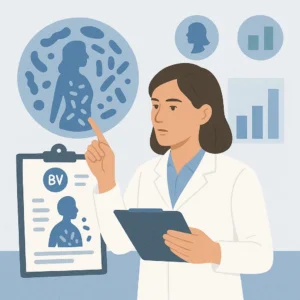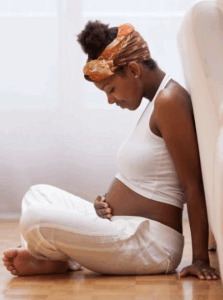This Valentine’s Day, we at ScreenMe think it is very important to discuss sexual wellbeing, as well as how to improve such and ensure you are practising healthy sexual habits.
Important numbers and sites if you need sexual health advice or help:
You should never feel at risk or uncomfortable, particularly with regards to your sexual health & wellbeing. If you are feeling afraid, unsure, or even curious, please give the appropriate number below a ring.
- National Sexual Health Helpline — 0300 123 7123
- For all general concerns, or advice on who to contact next
- www.brook.org.uk
- Free and confidential sexual health advice, contraception and counselling to those under the age of 25.
- Marie Stopes International — 0345 300 8090
- Gives advice on relationships, sex, contraception and other sexual wellbeing concerns
- The Rape Crisis national helpline — 0808 802 9999
- For those who have been the victim of rape
- Forward UK — 0208 960 4000
- Expertise and support around the threat of FGM
- www.mermaidsuk.org.uk
- Support for gender diverse young people
- Helpline — 0344 344 0550
- Your local GP
- NHS Health Service — 111
- Childline — 0800 1111
- www.chatdanger.com
- Surrounding the risks of online services, games and chats.
- www.thehideout.org.uk
- Information on domestic violence
- www.ceop.police.uk
- Website dedicated to protecting children from sexual abuse
- www.beyondthestreets.org.uk
- Working with women who face exploitation on the streets
What exactly is sexual health?
The WHO (World Health Organisation) defines sexual health as:
a positive and respectful approach to sexuality and sexual relationships, as well as the possibility of having pleasurable and safe sexual experiences, free of coercion, discrimination and violence.”
Factors which influence your sexual health & wellbeing are therefore wide-ranging, and include:
- Access to appropriate information surrounding sex, sexuality, gender, expression, relationships, pleasure, and more
- Knowledge of the risks of sexual activity
- Access to appropriate sexual health care
- Ability to live in an environment which promotes positive sexual health attitudes
- Ability to live in an environment which considers differences such as gender, sexual expression, sexuality, and more.
- Feeling safe sexually
- Protection from issues such as sexual violence, STDs (sexually transmitted diseases), and FGM (female genital mutilation).
How can I increase my sexual health & wellbeing?
- Allow yourself to feel comfortable
- Being comfortable both mentally and physically is so important when looking at your sexual health. You should never feel uncomfortable, or pressured into anything that do not want to do, and we recommend speaking to one of the above helplines if you feel this way.
2. Confidence
- We all have moments where we feel more or less confident in our bodies, and our own sex life. Here are a few tips we would give to help give you that little boost:
- Choose one thing you like each day about yourself (and it has to be different each day!)
- Compliment your friends, partners, or any loved ones — spreading positivity can never be a bad thing.
- Don’t compare yourself. You are your own person and no one can be like you, so own this!
- Remember — sex is not like it is in porn. This is a construction and so not meant to be displaying reality! (For more information on sex & porn — see our dedicated blog post on such).
- If you feel very low and unconfident, it may be time to seek professional help. We recommend speaking to your GP as a first step.
3. Physical health
- We often dismiss our sexual health due to stigma and taboos surrounding such, but it is really important to stay physically healthy. This includes:
- Practising safe sex
- Use protection when having sex, particularly with multiple partners. Whatever form works for you, as long as you are safe!Get regular sexual health checks — particularly if you haven’t practised safe sex this is really important, particularly as many STDs can be symptomless (see our blog post on common STDs here).
- (check out our blog-post of which lube, if any, is right for you!)
- Practising safe sex
4. Check your vaginal microbiome
- Uncomfortable symptoms such as recurrent UTIs, thrush, pain during sex, itchiness, and dryness, are all indicative of a vaginal microbiome imbalance.
- ScreenMe’s tests offer screening of 100% of the bacteria and yeast present in your vaginal microbiome, with 99% accuracy. In your free consultation, our experts guide you through your unique composition, and create a tailored plan of action to restore your sexual health & wellbeing. Find out more on our Vaginal & Sexual Health Packages page!
5. Understanding your body and pleasure
- Your body knows what works for it, and has no problem in letting you know this. So, why ignore it? The Female Orgasm gap is real, and it is about time that everyone’s pleasure is prioritised and considered. Some tips include:
- Try different forms of stimulation, particularly as many women do not orgasm from vaginal stimulation.
- Go beyond penetrative sex — try longer foreplay or other avenues.
- Try sex toys.
- Take control of your own pleasure — masturbation allows you to understand your body better, so that if you were to then share this experience with others, you will be better able to tell them what you like and don’t like.
6. Communication
- People are not mind readers. Sex can feel like an awkward conversation for some to have, particularly when people’s feelings are involved; therefore, often things get left unsaid. But think about this way — nothing is going to magically change unless there is a conversation. Ultimately, understanding yours and your partner’s desires will allow you to feel more connected in the long-run, as well as making sex more pleasurable for you both!
- If you’re are wary of doing this, try more positive or constructive framings such as:
- I would like it if you…”
- Why don’t we try…”
- I enjoy it when…”
7. Living a healthy lifestyle
- Having a diet and lifestyle that is balanced and nutritious can benefit your sexual health and wellbeing in so many ways! This can include, helping with confidence, restoring energy levels, helping you to last longer, as just a few! Have a look at our blogs on healthy lifestyle and nutrition for tips and tricks on how to create a healthier life for yourself.
We hope this has helped to get you started on the road to healthier sexual wellbeing. It is time to de-stigmatise sex and sexual health, and instead have productive and informative conversations.







